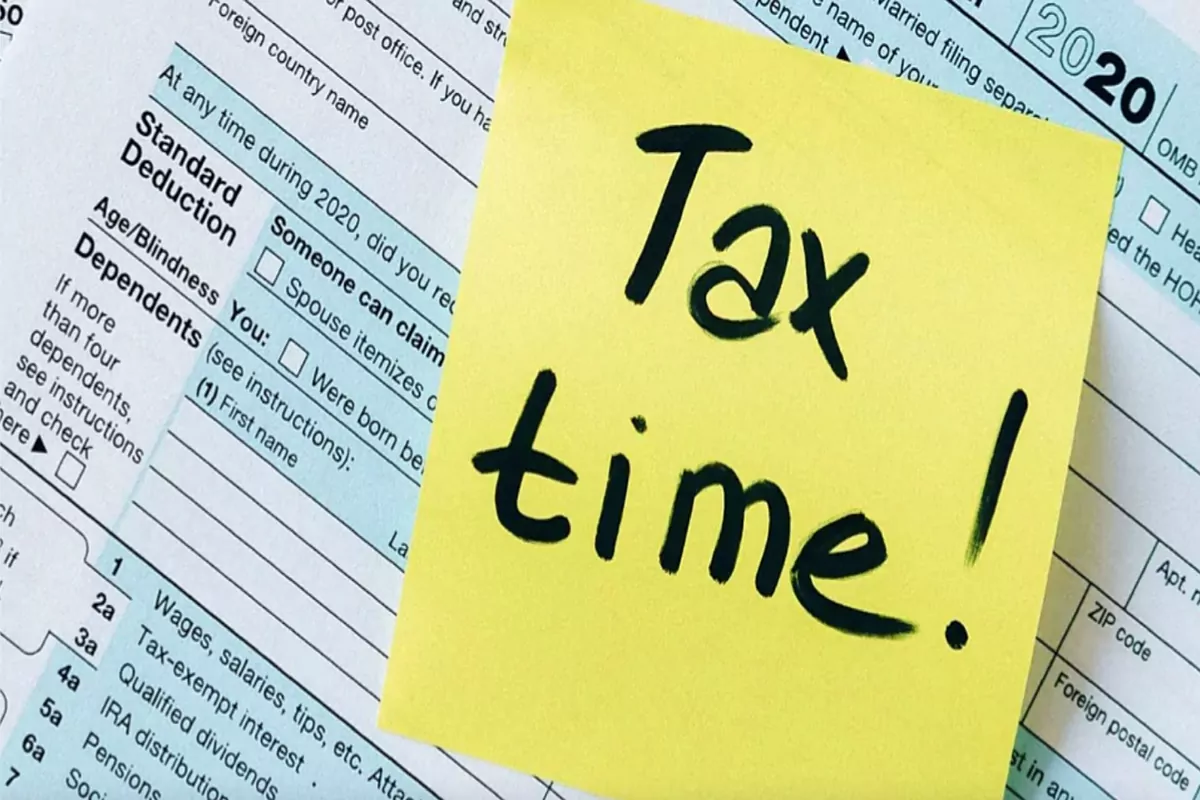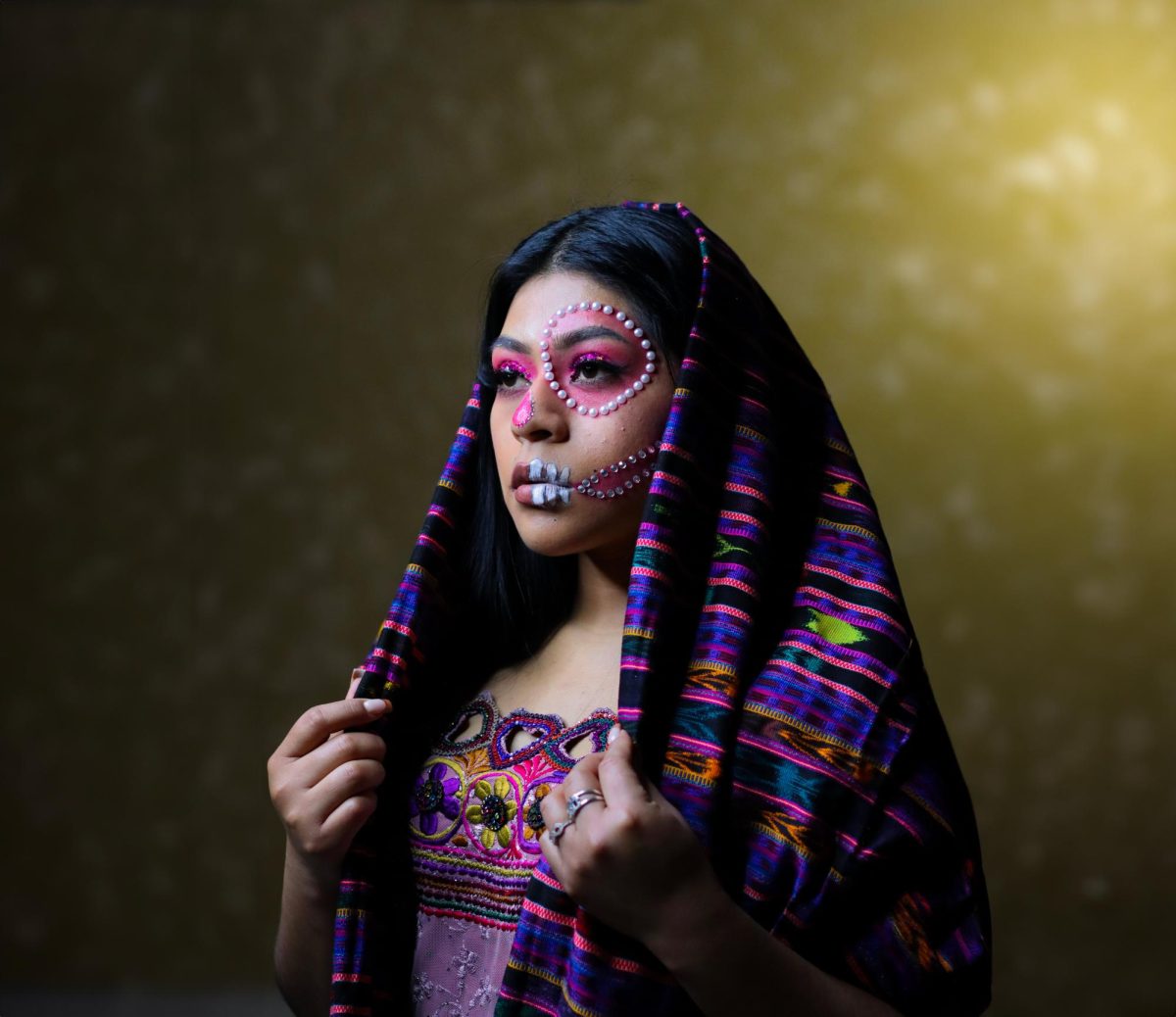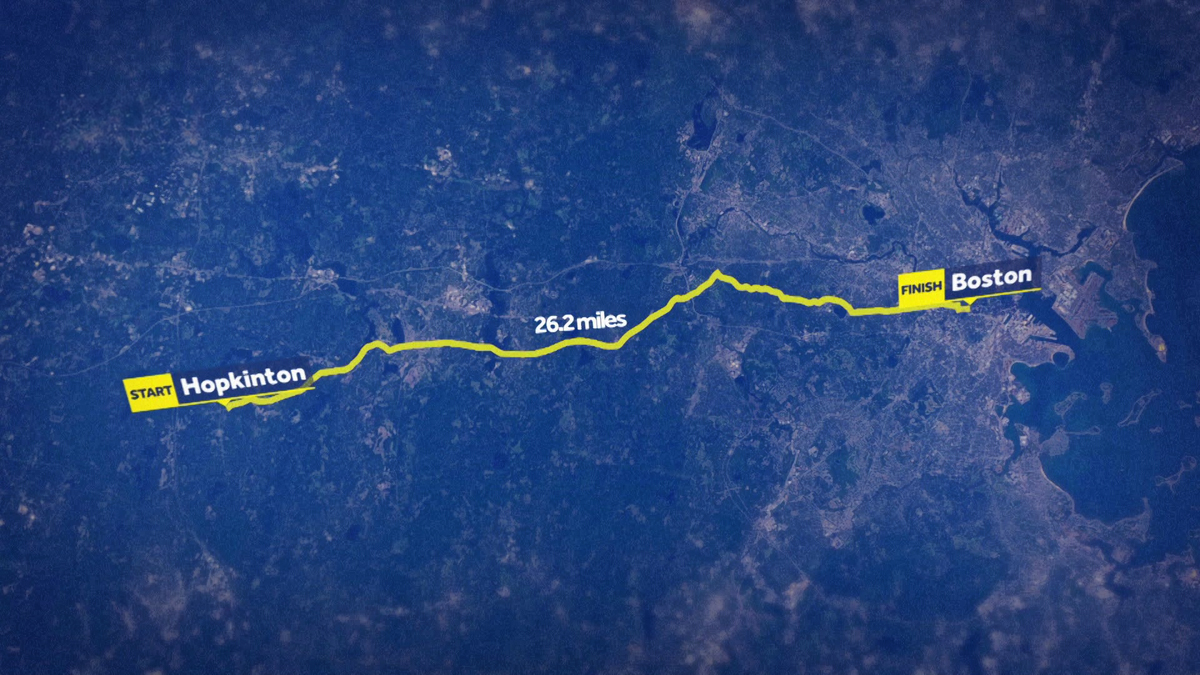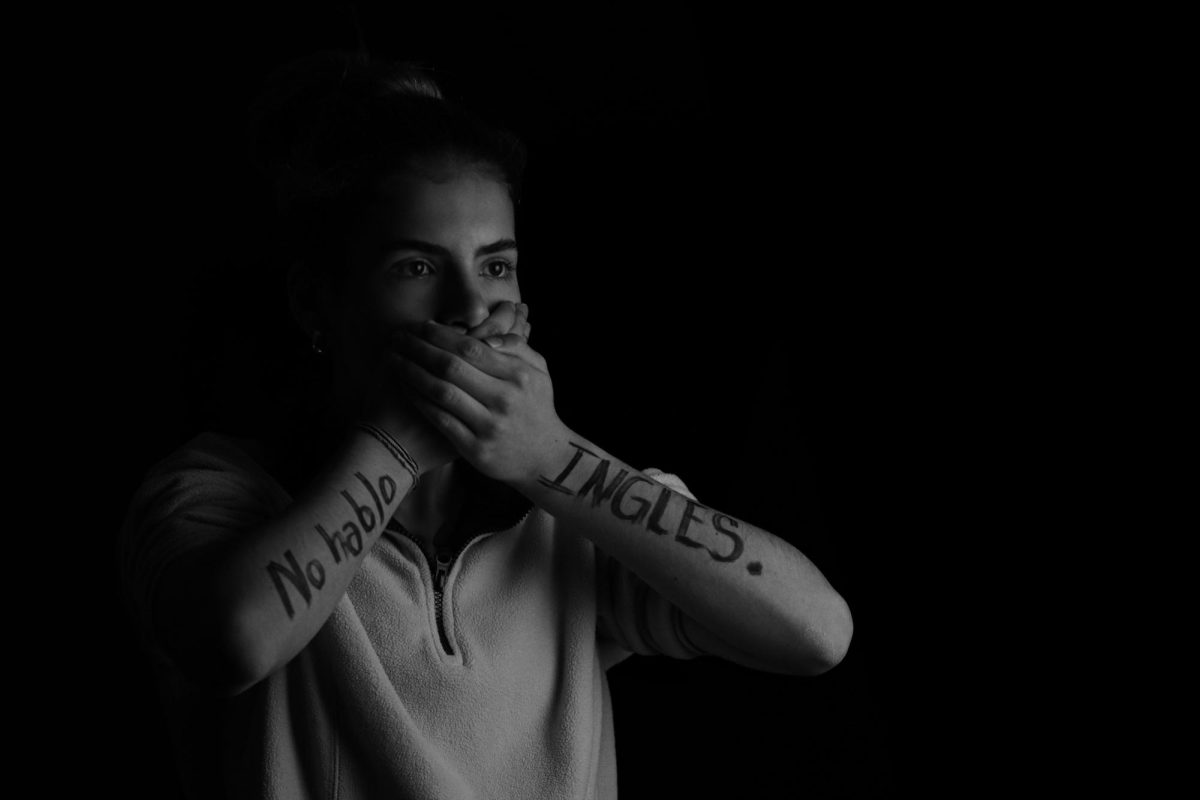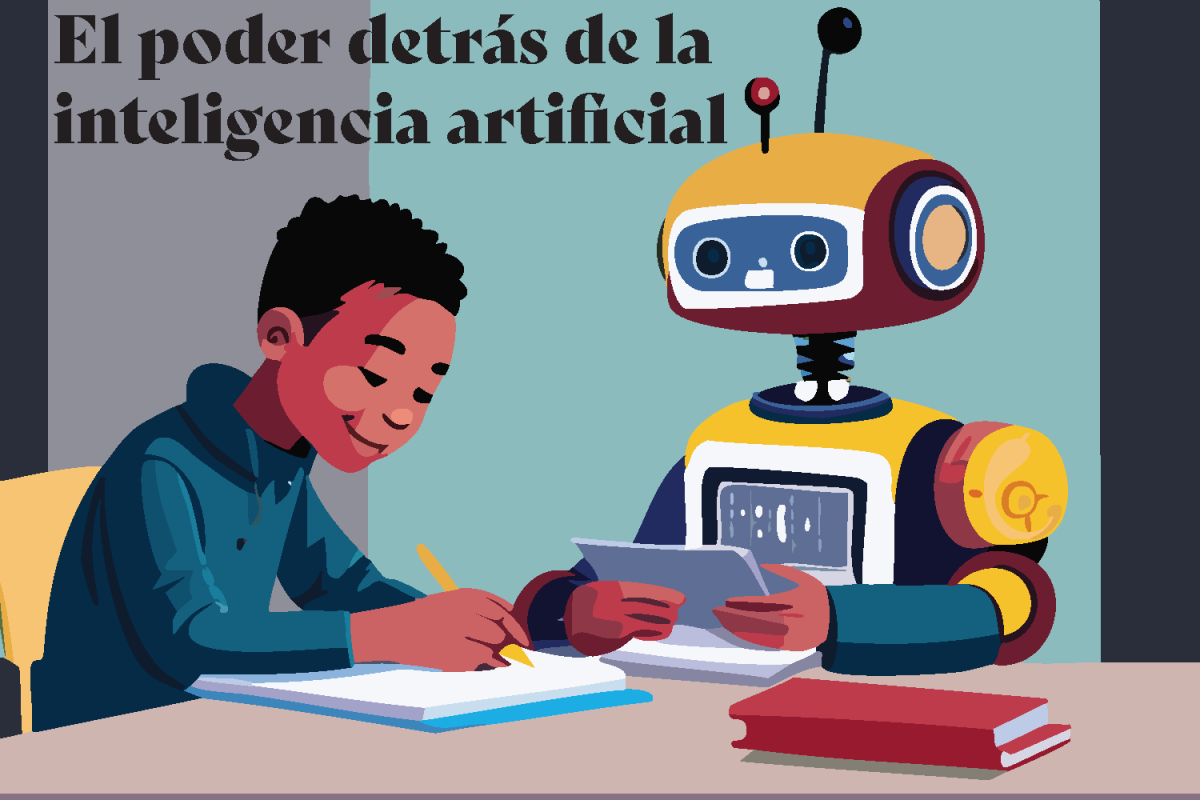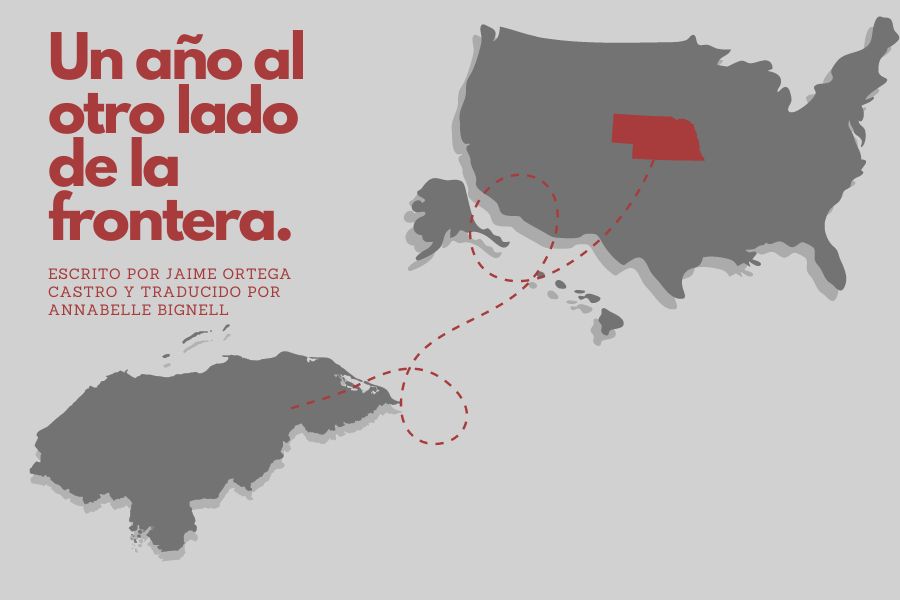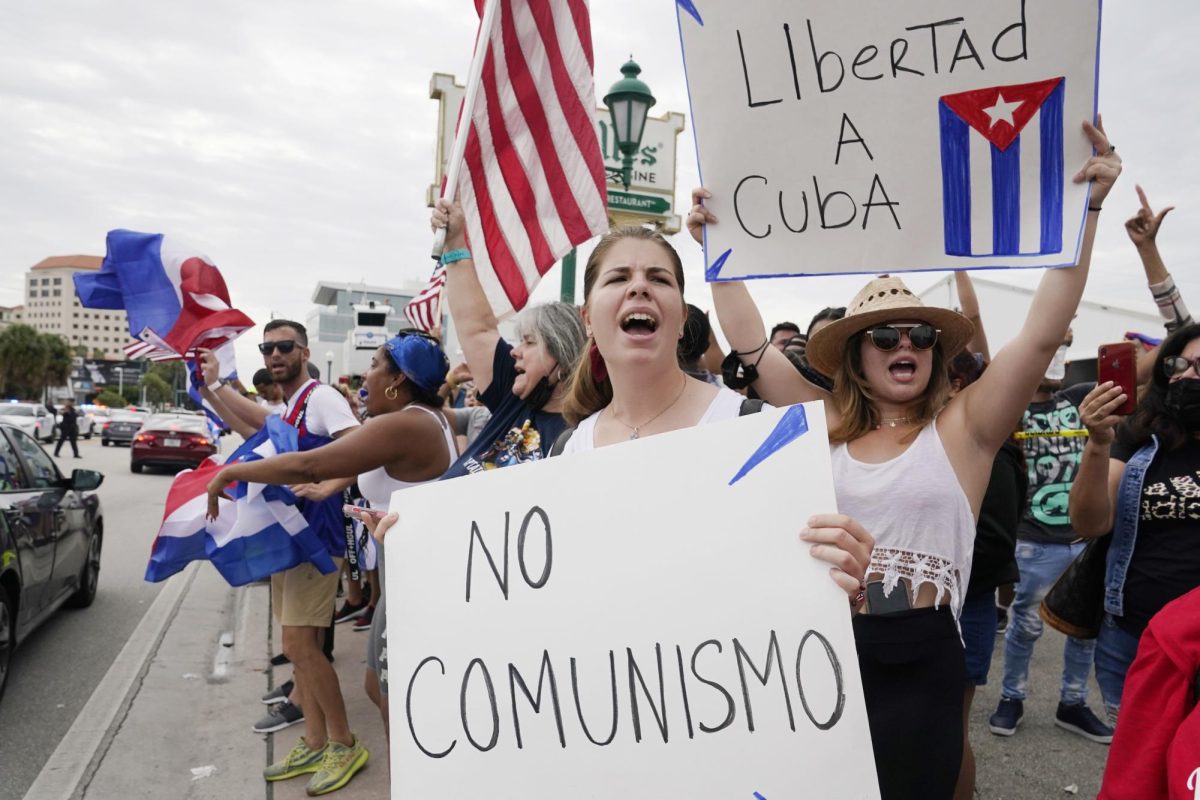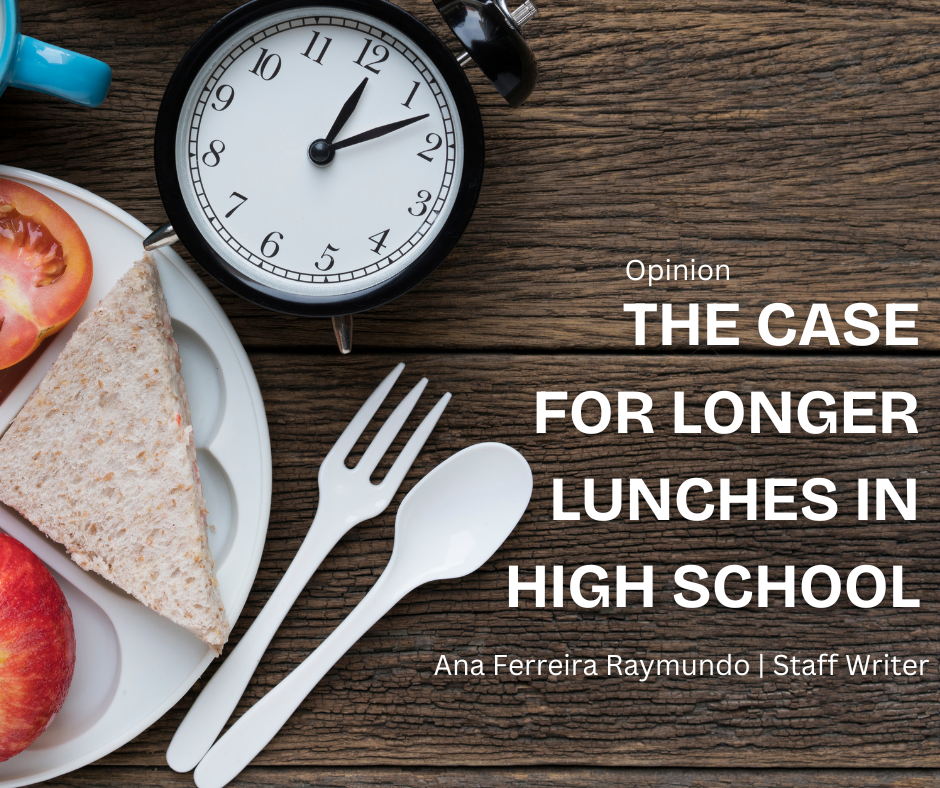Under the glaring, beating sun, my grandmother, Maura Licourt, stands in line outside the bodega, her body drenched in sweat as she waits for her food ration of the month. Each passing moment feels like an eternity, and Licourt’s chances of securing what she needs diminish with every person served ahead of her. The heat intensifies her frustration, adding an extra layer of hardships that she endures in communist-challenging living conditions in the country of Cuba.
Food rations are not the only hardships Licourt and millions of Cubans face daily in the communist country. Electricity is another problem. Cuba is allied with Venezuela, and in the last 15 years, they have supplied Cuba with 56,000 barrels per day of petroleum. Recently, numbers have decreased because of both countries’ economic systems. With Cuba not receiving enough fuel, the government is rationing electricity like they ration food.
“Quitan la corriente por partes a vez no tengo corriente pero la gente de la otra cuadra si tiene,” Licourt said (They take out electricity from certain parts at a time; sometimes I don’t have electricity, but people on the other block do.) In my grandmother Maura Licourt’s city, Pinar Del Rio, they ration electricity; when Licourt’s block has electricity, the other block does not.
Social media users on TikTok and X, also known as Twitter and Facebook, On March 17, 2024, Cuba was a trending topic on social media, which is a rare occurrence since Cuba is usually not a trending topic on US social media. The people living in Florida also took to the streets to show the Cuban people that they were with them, going live on Facebook to show them that they also saw their pain.
The protests in Cuba are an outcry against the oppressive regime that has governed the country for over 65 years. The protesters’ struggles are related because, as we all know, the United States is a free country. Here, we have the freedom to protest and freedom of speech. This is not the case for any people in Cuba who protest. If they protest, they get 5 years in jail or more simply because they have spoken against the communist regime. The struggles are not strange but serious matters, including food shortages, electricity rationing, and a lack of freedom and necessities.
In the spring of 2016, my mom and I left the country that we have known for all of our lives. We left because my dad did a family reunification before we got our visa. It was a long process and a lot of waiting to get our visa. I am a Cuban immigrant who left my home country for a better future. I have experienced firsthand the harsh realities that my family members still endure in Cuba today. Despite living in the United States, Cuba is still a place that I call “home.” The situation in Cuba is more than a social media trending topic; it is a fight for human rights for those who share a deep love and connection to the country.
When listening to the stories of my Cuban family members who still live under the oppressed government, they tell me of the hardships that they face every day. Some people worry about not having enough food. Even if they have enough for three meals a day, when they eat all the bread for dinner or lunch, they won’t have any left for breakfast, which adds to their anxiety.
“Yo fui a la tienda, pero cuando era mi turno, la comida se acabó.” (I went to the bodega, but then food ran out by the time it was my turn), said Licourt.
My aunt lives in the countryside of Cuba, where they get vegetables faster because that is where a lot of farmers are at and they also farm themselves. However, she still has to spend hours in line to get food. In most cases, she leaves empty-handed or with meager rations that could barely sustain the rest of her family in her house—their two adults and a little kid who is 3 years old.
Necessities such as rice, beans, and even bread are becoming increasingly scarce for daily consumption. Picture receiving only four pieces of bread for a family of four. At the beginning of February, the government opted to restrict bread distribution to children aged 1–14, eliminating access to bread for adults.
Citizens have to plan their day around when the city schedules power outages to cut off the power to save fuel.
For most items, people get only eight hours or less of electricity per day, which disrupts their everyday lives. Power outages make even the simplest tasks, like cooking meals and studying, more difficult for people who are trying to survive and become educated.
The impact of electricity outages takes a toll on younger children in school. With no power, they struggle to complete homework assignments or even see the work they need to do.
These are the main Cubans they face every day. The Cuban people are not asking for the moon. They are demanding the most basic human right. They seek the right to speak freely and protest.
Whenever Cuban citizens protest peacefully or not against the authorities, they are arrested. The government also shuts down the internet for the interior country for hours because people are not speaking up against the injustices they face. I know the importance of this situation.
As someone with deep ties to the Cuban community, I know that the protests in Cuba are not just about politics and people trying to gain fame; they are about how much Cubans want to be free from the government that has kept them locked and caged. They do not want to worry about rationing their food or having to give it to the youngest person in the family.
As I watch these events unfold from afar, I am filled with pride and happiness to see my fellow Cubans protest democracy across the country with determination, knowing that one day these protests will pay off. I believe it’s time for the world to stand up with my country and with the Cuban people who flood the streets and sacrifice their safety to protest and fight against the Cuban government.



